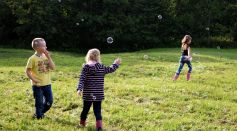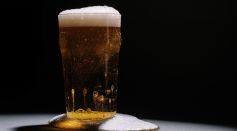MEDICINE & HEALTH

Informa Pharma Intelligence Warns Flu Vaccine May Fail to Reach 40-60% Efficacy

Depression During Pandemic: How Does Nostalgia Affect Our Happiness in This Time of Health Crisis?

Pandemic Lockdown Affects Children’s Mental Health; New Study Shows More Playtime in Nature Means Less Behavioral Problems in Kids

Circadian Specialist Explains How Neurobiology Activity Wakes Up People at 3 AM

Highly Processed Food Linked to Memory Loss in Aging Brain; DHA-Rich Foods Help Reduce Inflammatory Effects
Sickle Cell Disease: Rapid, Low-Cost Diagnostic Platform GazelleTM Could Improve Care in Remote Regions

Genes in Liver Cells Discovered to Mutate During Lifetime; Could Lead to Chronic Liver Disease, Obesity, and Sugar-Related Problems

Longer Time Spent in Space Potentially Increases Risk of Brain Damage; Researchers Examine Blood Samples of 5 Cosmonauts

Heartburn Medication Discovered with Unexpected Benefits in Severe Gum Disease Prevention

Scientists Found Nearly 42,000 Toxic 'Forever' Chemicals That Could Contaminate Drinking Water
Mosquito That Can Carry Zika Virus, Dengue Detected Near Sacramento Park

Antioxidant-Filled Foods Could Help Prevent Alzheimer's Disease, New Study Suggests

Menopause Treatment: Laser Rejuvenation Therapy Fails to Show Benefits During Trial
Leprosy in Wild Chimpanzees Detected in Primates with Symptoms Similar to Those in Infected Humans
Most Popular

Can We Bring Back Extinct Animals? How De-Extinction Science and Technology Work

Why Do Stars Explode? Supernova Formation and the Final Stage of a Star Lifecycle

The Air Pollution Climate Link: What Environmental Science Reveals About Our Changing Planet

Extreme Heatwaves Explained: What Extreme Heat Science Reveals About Our Changing Climate





